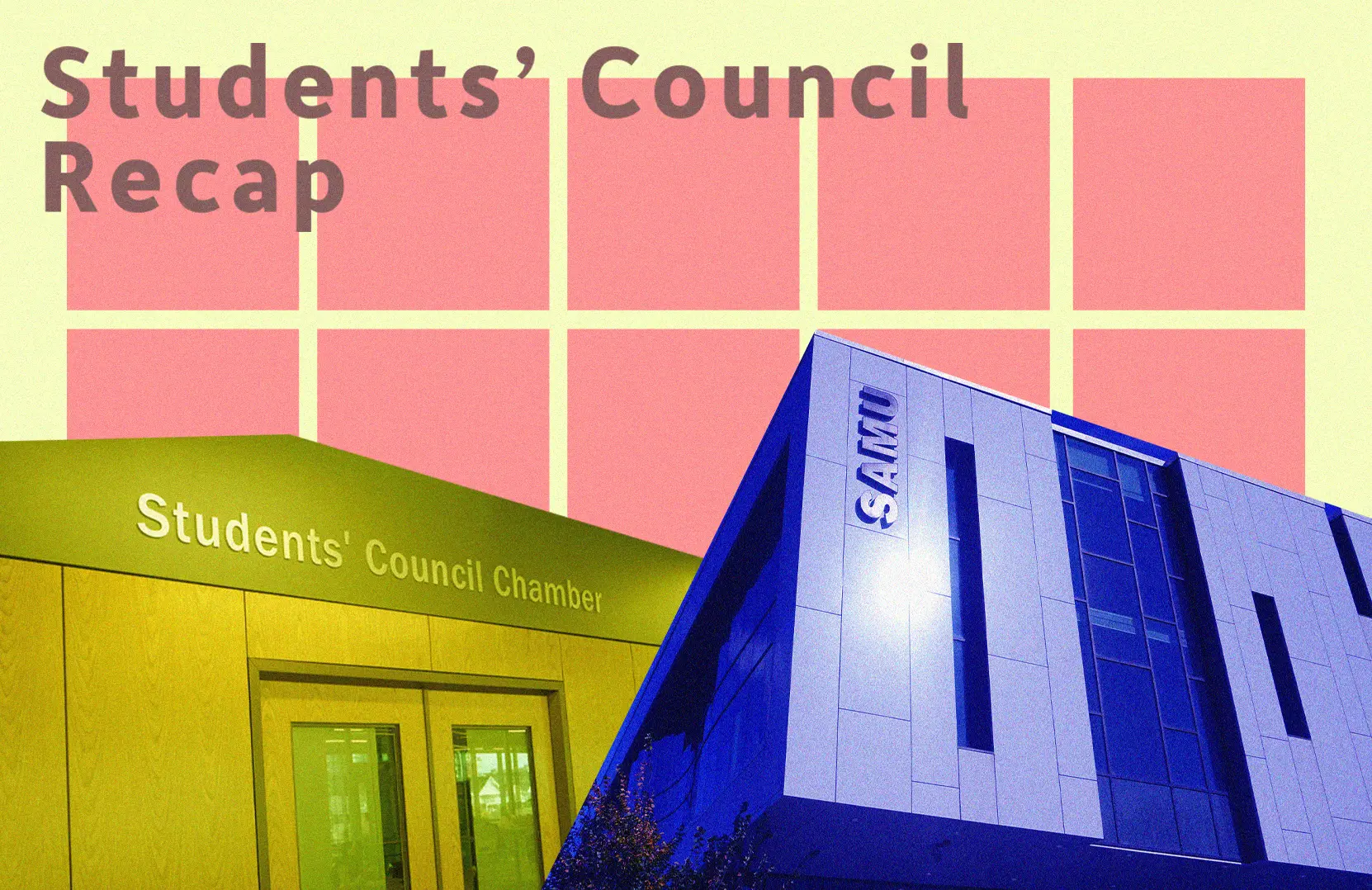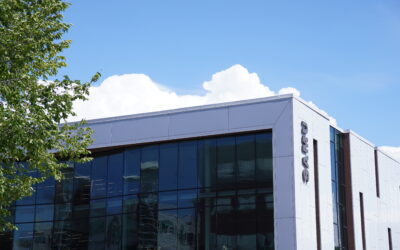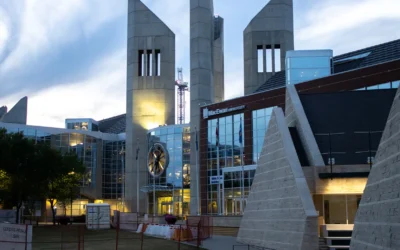On Sept. 20, 2023, the Students’ Council meeting started with an overview of SAMU’s 2023 Financial Audit which was presented by Patrick Moore, an assurance partner from Meyers Norris Penny (MNP).
The presentation was followed by a question period. The primary topics of discussion included a recent visit to MacEwan’s Ponoka campus, the Beaver Hills Gathering event status, the Don’t Go Textbook Broke Initiative, and recent negotiations about MacEwan possibly adopting three-year programs as well as MBA degrees.
SAMU 2023 audit
Every year, SAMU goes through an audit which is conducted by the third-party accounting firm MNP. At the end of the audit process, MNP reports on the audit findings by releasing financial statements.
The audit results showed that SAMU’s finances adhere to Canadian auditing standards. The audit reported that the 2023 audit results were similar to previous SAMU audits. Additionally, the presentation included financial information such as recommendations and revenue.
In 2023, SAMU’s total revenue increased by approximately 10 per cent. A substantial part of this revenue can be accredited to fee collection for the SAMU Health & Dental benefits plan. Additionally, the presentation revealed some of SAMU’s assets which include the SAMU building itself.
When the building’s construction was substantially completed in the fiscal year 2020, the building’s lease was determined to be 99 years. As a result of the longevity of the lease, it is SAMU’s largest asset.
Ponoka campus
On Sept. 13, the vice-president of Student Life, Cierra Jacobs, organized a visit to MacEwan’s Ponoka campus. The Ponoka campus, located at the Centennial Centre for Mental Health and Brain Injury, houses students obtaining their psychiatric nursing diploma.
The campus visit provided Jacobs the opportunity to seek out feedback from students, especially about student experience. Jacobs left students with feedback forms, providing them the opportunity to share their thoughts and concerns.
Jacobs said that they are currently awaiting feedback. However, the Ponoka campus may be seeing more visits in the future.
Jacobs said: “We’re looking to make it an on-going project where we will follow up and see what we can do to make it a yearly visit and how we can continue communication with students.”
Despite the physical distance separating the Ponoka campus from the downtown campus, all students have access to remote services offered through SAMU. Ponoka students have access to services like the Pantry and Peer Support and resources like the Student Survival Guide. If Ponoka students are able to drive to the downtown campus, they are able to attend events such as Comedy Night, Fall Fest, and the Cinema Series.
Because Ponoka students pay SAMU student fees, they are able to run for council as a student representative. A Ponoka councillor would be able to virtually attend the council meetings.
Beaver Hills Gathering status
In early August, SAMU promoted the Beaver Hills Gathering. Although the event was meant to occur on Aug. 22, it was cancelled and delayed until further notice.
The celebration was meant to take place in the Beaver Hills Biosphere, a traditional gathering place for Indigenous Peoples. Approximately 20 students from five to six post-secondary institutions would attend the event. Due to a lack of engagement, the event was postponed.
Jakob Cardinal, vice-president external, admitted that the initial uptake expectation was optimistic.
“Each institution had varying willingness and desire to uptake that many students and that many faculty in the summer months,” said Cardinal. As a result of the low engagement, the event’s continuation is to be determined.
Assessment of the event’s status will continue after National Day of Truth and Reconciliation. This decision to delay the event until after October is due to the sombre nature of Truth and Reconciliation.
“With the Beaver Hills Gathering, it was meant to be an event away from Truth and Reconciliation and away from Orange Shirt Day…,” said Cardinal, “the Beaver Hills Gathering is intended to be a celebration apart from these days of mourning.”
Student use of AI on campus
The vice-president academic, Stephan Vasquez, has led the AI2 working group. The group’s work consists of reviewing the student use of AI on campus. The council asked Vasquez if there were any updates on the use of AI in the classrooms.
Vasquez reported that there weren’t any new updates, but that MacEwan students can expect more materials on how to use AI.
The library has created a citation guide for students citing AI in their academic work. However, Vasquez urged students to ask their professors before using AI in the classroom as failure to do so could result in an academic violation. Next month, there will be an academic integrity workshop that will focus on the topic of AI.
The vice-president academic reported to have plans to organize an AI literacy week in February next year. The AI literacy week’s purpose is to help students properly and effectively use generative-AI tools without committing plagiarism or academic dishonesty.
Three-year programs
SAMU was involved in negotiations regarding the implementation of three-year programs at MacEwan. Vasquez stated that the discussions were ended and that they took a firm stance that three-year programs are not a feasible option for students.
“School’s already stressful enough,” said Vasquez. “Degrees take longer, and with rising costs, students are dropping the number of classes they’re taking.”
Other concerns about three-year programs included the unpredictability of class availability, cost, mental health risks, and social isolation. Although certain programs may possibly be completed in three years, available classes cannot be predicted. According to Vasquez, there are too many risks such as illness or lack of instructors that could hinder graduation.
MBA programs at MacEwan
The vice-president external Cardinal discussed the possible creation and implementation of Master of Business Administration (MBA) degrees at MacEwan. Commerce faculty members inquired about the possibility of MBA programs, but following negotiations between SAMU and MacEwan, it was determined that the creation of a Master’s program at MacEwan is unlikely to happen.
Cardinal said, “MBAs are typically cash-cows of Master’s programs,” With MacEwan’s current infrastructure, the formation of a Master’s program would be too much for the institution to currently undertake. “It’s just unfeasible for us,” he says.





0 Comments